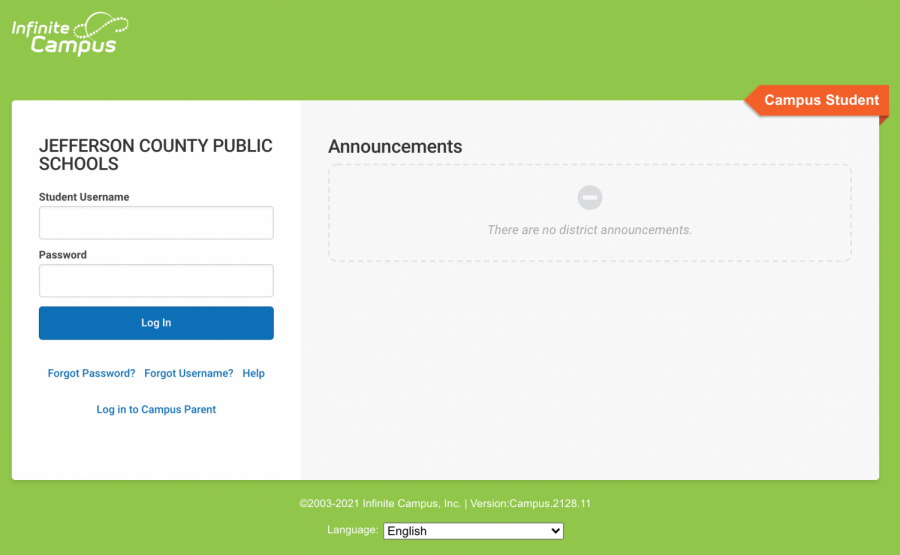Manual students and teachers react to JCPS’ new grading system
JCPS students and parents can log into Infinite Campus in order to access class schedules, grades and transcripts.
August 21, 2021
Jefferson County Public Schools (JCPS) announced a change to the grading system just prior to the start of the 2021-22 school year. The recent changes have caused frustration among many in the JCPS community, who claim the new system will put greater stress and pressure on the backs of students.
The previous grading system was split into three different categories; engagement, progression and mastery. Engagement made up 20 percent of a student’s overall letter grade and primarily came from class participation. Progression made up 30 percent of a student’s overall letter grade and related to anything from class warm-ups to homework. Mastery accounted for 50 percent and came from tests, projects and essays.
Although this is how most assignments were organized in the system, each teacher may have graded or assigned points differently. For instance, one teacher may have organized homework assignments under engagement instead of progression.
The new grading system only has two categories; progression and mastery. Mastery can now account for up to 90 percent of a student’s final grade, which leaves just 10 percent for works under progression. This means that there will likely be less room for “buffer” assignments and that now more than ever, tests will hold great sway over a student’s final letter grade.
This renovation affects both students and teachers, as everyone will have to figure out how to adjust.
Mrs. Margaret Mattingly (English) thinks the new changes will work out eventually.
“I think over time it will be ok. Standards Based teaching/grading does have a lot of data to support its success in the classroom,” Mattingly wrote.
RedEye virtually inquired about the Manual student body’s reaction to JCPS’ decision.
“I think it puts too much pressure on students to do well on tests and mastery assignments. With at least 70 percent of our grade relying on mastery assignments, students will feel a lot of stress to do well on them, and they don’t need that extra stress on top of the stress from returning to in-person school,” Nicolette Bert (12, MST) wrote.
“It’s not horrible,” Norah Hill (11, MST) wrote.
Many students expressed how they felt this new system is unfair and unevenly distributes the workload on students, while others deem it an acceptable but not ideal situation. One primary concern of students’ is how one bad test grade could now completely wreck chances of obtaining an optimal letter grade. Whereas, in the past, one bad test grade could be more easily counteracted and bounced back from with the addition of other assignments and being less heavily weighted in the mastery category.









